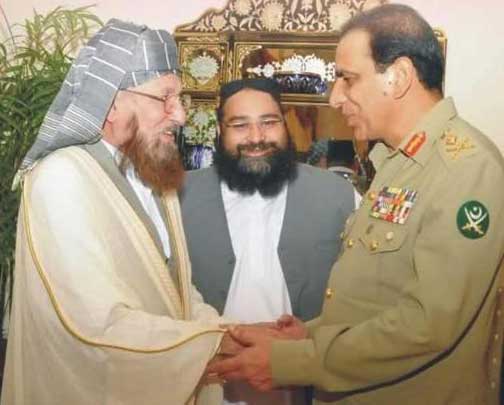
Gen Kayani’s imminent retirement has resulted in a surge in two related parlour games: Wistful speeches about the outgoing Army chief’s place in history and the wishful thinking about who the incoming Army chief will be and how he will continue Kayani’s legacy of saving Pakistan. Whoever the new COAS will be is known only to one man right now, and he isn’t talking. But it is worth taking a moment to reflect on Gen Kayani’s legacy, both the myths and the reality.
The story that will most likely define Gen Kayani’s tenure as COAS is one that is likely to focus on two claims: That the general ushered in a new era of respect for civilian authority and that he was a visionary leader who tried to improve relations with India. In the official history books, Gen Kayani will likely be glorified as an Army chief of historic standing.
Obviously, this mythical history of Gen Kayani’s leadership is based in some actual, and praiseworthy, events. Despite years of rumours and predictions, there has been no military coup. This is where we get the story that Kayani has restored balance to civil-military relations. But that’s a pretty low bar, isn’t it?
While it’s true that Gen Kayani did not lead an overthrow of a democratically elected government, he did not really change the balance of power between the two in favour of civilians either. When the previous government tried to bring the ISI under civilian oversight, they were immediately slapped down. As controversial as it was at the time, the most honest assessment of the chain of command was probably the Defence Ministry’s reply to the Supreme Court in 2011 that it had no control of Army/ISI operations. Even this was only news to those with short memories – a similar reply had been given to the Sindh High Court by the previous government in 2006, just before his promotion to COAS when Kayani was still DG ISI.
By keeping the military out of the political spotlight, Gen Kayani has created an illusion of civilian authority even though the military has not given up its control over foreign policy or national agencies. None of this should come as a surprise. When Gen Musharraf hand picked Kayani as his successor, he did so in part because he knew Kayani’s low profile approach would help restore the belief in an independent government without giving up Army control. This was important to Musharraf’s plan to keep power, but it turned out to have an additional benefit following the 2008 elections: Keeping authority with the military, but placing all the accountability on civilians.
Gen Kayani was also able to utilise this strategy in dealing with India and the US. Before he was promoted to COAS, Gen Kayani was DG ISI when Gen Musharraf originally approved American drone strikes. In fact, 8 of the first 9 known American drone strikes took place under Gen Kayani’s leadership at ISI. The rest of them have taken place under his leadership as COAS. And we know from Wikileaks that he not only approved them, Gen Kayani secretly actually asked the Americans to drone more.
That hasn’t stopped the Army chief from publicly condemning the drone strikes, though. Even amid public calls to shoot down drones, the blame has always been placed squarely on the civilians instead of the military.
With India, Gen Kayani has given some great speeches about ‘peaceful co-existence’ with India, but behind these pleasant sounding words, peace talks are still being sabotaged by militants. Not only did 26/11 take place during his tenure, but since the past five years Gen Kayani’s military has stood in the way of investigations.
At home, militancy has spread almost uncontrolled under Gen Kayani’s watch. PNS Mehran was attacked by militants, as was PMA Kakul, as was Kamra air base. Five officers, including a Brigadier, were convicted of having links to extremist group Hizb-ut-Tahrir. Things have gotten so confused under Gen Kayani’s watch that there is now a public debate about whether militants who die attacking our soldiers are the real shaheeds.
None of this will be written in the official history books. Instead, we will hear about Gen Kayani who defeated the Taliban in South Waziristan, supported democracy and extended an olive branch to India, despite their arrogance and aggression. But then, we have always preferred the myth to reality.
![]()





